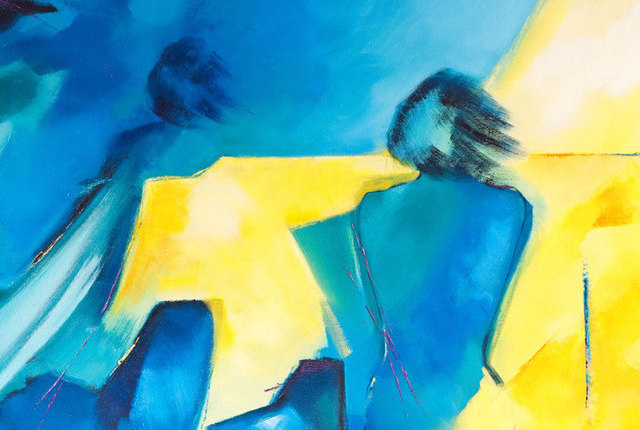 LA-based Agazit Abate is the daughter of Ethiopian immigrants. "Gash Wondimu" is inspired by the men and women who raised her, the country they left behind and the lives they built with their memories.
LA-based Agazit Abate is the daughter of Ethiopian immigrants. "Gash Wondimu" is inspired by the men and women who raised her, the country they left behind and the lives they built with their memories.
By Agazit Abate
The resting place of the dead is respected here. Straight lines, manicured grass, clean concrete and untouched graves. Everything has its place. There is an order to things here. People die and are buried after careful planning. Death lays neat, it doesn’t pile up here.
You know, I hear that they even keep bodies in walls. I can’t imagine that. Bodies should go back into the soil, but what do I know.
You remember when Seifu told us that they were removing bodies from Yosef to build roads in Addis. His family had to collect the bones of his mother, father, and two brothers. The dead are overwhelming the new city there.
***
You always did have bad timing. Looking back on things, I think we both did. Maybe our whole generation had bad timing, maybe that was our problem.
You slipped into this earth the same way you slipped out, unexpected and displaced. I remember when you told me that your mother didn’t know she was pregnant with you until you began kicking. According to her calculations, you were supposed to arrive during the bright yellow blooms of adey abeba. She believed that you were a boy and that you would be born on new years’ day. She was only half right. You came early, during the rains. She was in a neighbors’ house across town and had to rush home to have you.
It was 1940. Your mother believed that even though the Italians occupied Ethiopia, her home was free. She wanted to make sure that you were born on your grandfathers’ land, that your umbilical cord would be buried on that piece of earth. She didn’t make it home, but she kept the umbilical cord and buried it where she believed you belong. She said that the soil was soft, that she didn’t have to dig, and that the earth swallowed it. She knew that the land accepted you, that the resistance would succeed, and that the Italians would be leaving Ethiopia.
We spent decades talking, and you die six months before things start getting interesting. Before protests and revolutions, before leaders fled, were overthrown, and killed. You died before our own two months of silence. Before change took place on our land and before everything stayed the same.
I had to have conversations without you, sometimes with other people and sometimes with myself, sometimes at this spot, wondering what you would say.
It’s cyclical. Now is the time for fire. It will burn out and we will deal only with what is left behind. Nothing is new.
There was so much that we could have spoken about. The world was anxious for a time and you missed it.
***
I’m an old man now. I’m older than I was when you died four years ago. You know what I mean by that. It feels like yesterday, but somehow my body remembers it differently.
Walking up this hill to see you is getting harder and harder each time I come here. The landscape is crisp and unrelenting and you are resting at the top of what might as well be Entoto. This is a place for young people to come visit old people who have died. Thank God, Tsion decided to give you an upright tomb. Some of them lay flat in the ground. If yours was like that, where would I rest my back? There is no tree to give you shade, no base to give my body comfort. I would have to bring a chair up here. Imagine, carrying a chair all the way up here.
I look older too. I get senior citizen discounts without even asking. I went on the bus last week and paid the full fare. The bus driver looked at me and said, “You know you only have to pay fifty cents.” I didn’t understand until I sat down and a man whose body has been lived in longer than the emperor, looked at me and nodded his head as if to say, welcome.
But, I don’t mind getting old. I like it when people call me Gash Wondimu.
Read more at Warscapes Magazine »
—
About the Author:
Agazit Abate received a Bachelor of Arts Degree in International Development Studies and Masters Degree in African Studies from the University of California, Los Angeles. She works on projects related to cultural production and environmental sustainability.
Join the conversation on Twitter and Facebook.

























